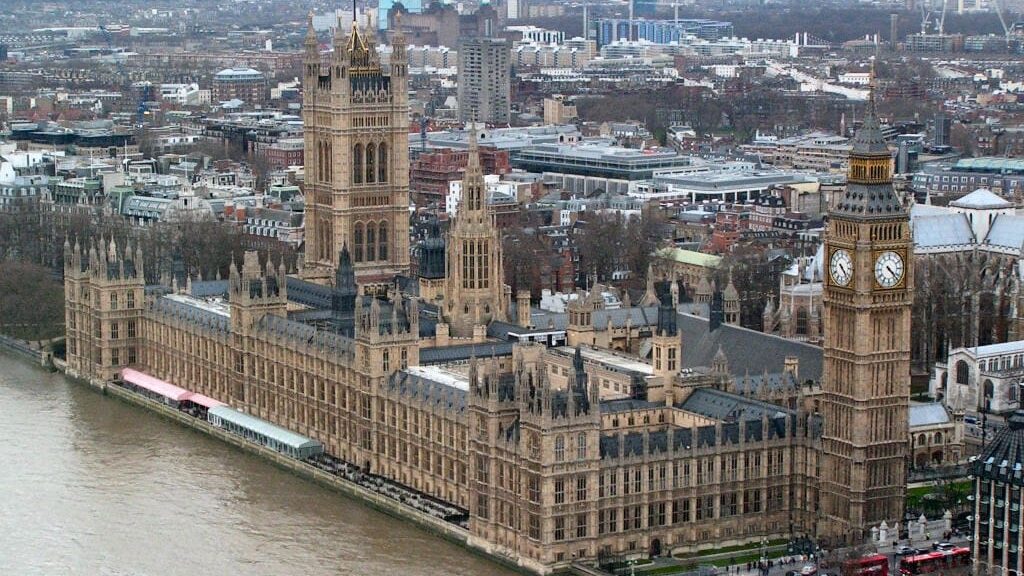
Photo: DaniKauf, CC BY-SA 3.0, via Wikimedia Commons
Days after Nigel Farage took over as leader of Reform UK—a position he pledged to hold for the next five years in order to lead a political “revolt”—both Labour and the Conservatives dropped in the most well-respected polls of voting intentions.
New voting intention (3-4 Jun): this is our first poll carried out under our new methodology, which mirrors that which we use for our MRP
— YouGov (@YouGov) June 5, 2024
Lab: 40%
Con: 19%
Reform UK: 17%
Lib Dem: 10%
Green: 7%
SNP: 3%https://t.co/VHghLQiJiQ
To show what impact the new methodology has had on… pic.twitter.com/YOeo4LZPoB
Reform is now just two points behind the Tories and is, for the very first time, predicted to win seats (three or four, depending on who you believe) in Parliament.
“We’re just getting started,” said Farage, fresh from the launch of his own packed and positive campaign for the parliamentary seat of Clacton. With speculation rife about Reform taking over the Tories as the official opposition (if lightly-represented in Parliament) to the likely incoming Labour government, journalist Steven Edginton added that “a huge shift in British politics is under way.”
Glance for a moment at the ‘election battle’ taking place between Labour and the Conservatives, and you’ll understand why Farage is gaining more of the headlines. Even a milkshake in the face after his Clacton campaign launch appears to have worked in Farage’s favour.
The ‘milkshaking’ ended up forcing his political establishment enemies to speak publicly in his defence. Further to the Left, pundits welcomed a spot of common assault as a legitimate political contribution, with Corbyn-era pundit Owen Jones calling the attack “art.” This sheds light on the sinister underbelly of the perennially online activists who exhort us all to ‘be kind.’
Such people (or, rather, Twitter) thought the milkshake throwing was a setup. The theory has, however, been disproved, and the Jeremy Corbyn-supporting woman—since reported to have “used the stunt to try and bring viewers to her ‘explicit XXX’ [OnlyFans] content page”—has been charged with assault by beating and criminal damage.
Farage said that such an attack couldn’t happen to either Tory leader Rishi Sunak or Labour’s Keir Starmer because “I go out and meet people [and] nobody else does.”
🚨 NEW: Nigel Farage gets emotional as he says he keeps getting milkshakes thrown at him because he meets the public
— Politics UK (@PolitlcsUK) June 4, 2024
"What does Rishi do? He gets a room of 2-dozen councillors. No one goes out and does the old-style street campaigning & this is the risk" pic.twitter.com/VjhBq50iRg
Politico’s Westminster-focussed newsletter London Playbook responded that the establishment figures don’t prompt either the same levels of excitement or “antipathy” as Farage because “those dudes have to worry about governing—something Farage has never had to concern himself with. His schtick is denigrating opponents, shouting slogans and making complicated demands sound simple.” They’re also clearly riled by his return.
Talk will turn soon to the various manifestos set to be published next week. But a list of Reform pledges is already touring the internet and is, again, prompting more discussion than could typically be expected from a list of Conservative or Labour promises.
This SHOULD have been the Conservatives manifesto, but the party was taken over by wets, wanabee Lib Dems and a few utter crank pots.
— Adam Brooks AKA EssexPR 🇬🇧 (@EssexPR) June 5, 2024
This is something I can finally get behind. Can you ? pic.twitter.com/f5EqKeR0Ev
The list mainly focuses on immigration—of course—and taxation, both of which have dominated the election campaign to date.
Any discussion around policy will, however, be overshadowed by Tory-to-Reform defections, at least six of which are said to be in the works already. Political academic Matthew Goodwin warned that “rule one in the new revolt” is that “Reform and Nigel Farage should only welcome defecting MPs whose voting record is consistent with the new conservatism.”
The ‘rule’ is particularly prescient given complaints from the British Right earlier this year about Reform publishing its election candidates list early to allow the left-wing media to help vet it, and informally taking advice from ‘Hope Not Hate,’ a left-wing campaign group which is hostile not just to Reform candidates found to have posted contentious Tweets some years ago, but to Reform as a whole.
